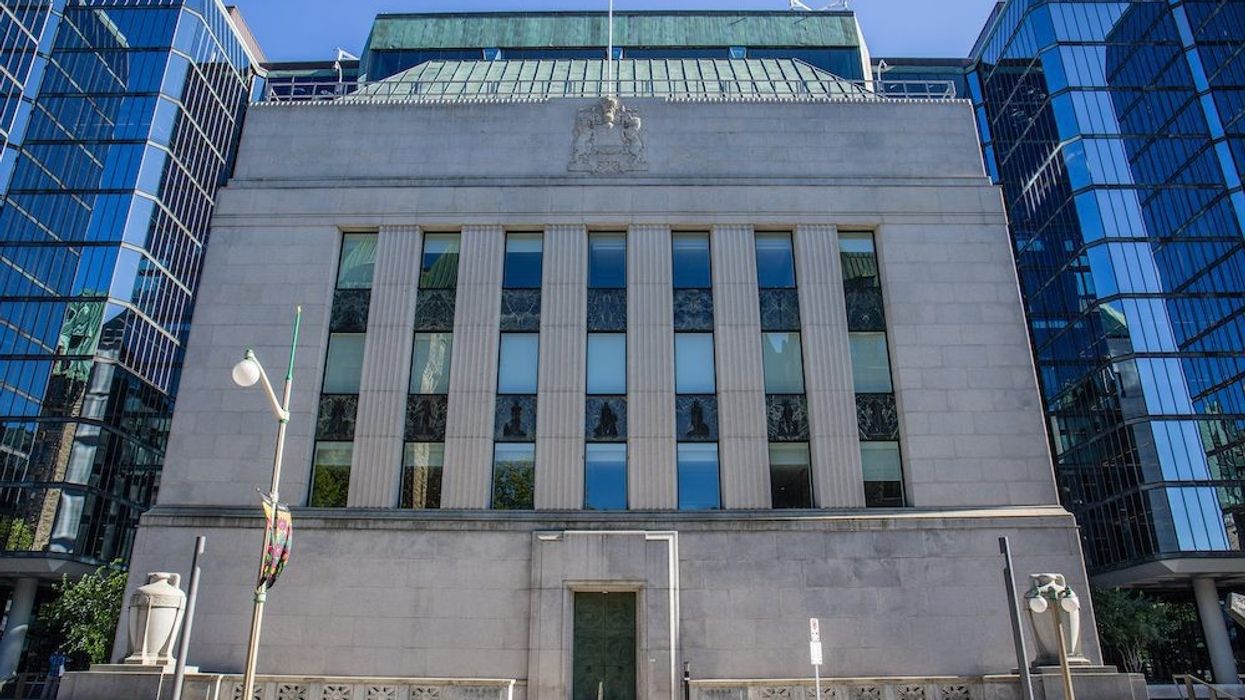The Bank of Canada (BoC) is expected to raise interest rates another full percentage point by the end of the year despite already easing price pressure, a new report from RBC Economics says.
Over the past several months, central banks around the world have implemented aggressive rate hikes as they attempt to battle runaway inflation. Canada is no exception, having implemented a surprising full percentage point increase to the overnight rate in July, raising it to its current 2.5% level. Later that month, the US Federal Reserve also took a bold step, introducing a second consecutive 75 basis point hike.
And there's even more to come, the report says.
RBC is projecting that the BoC will raise its rate to 3.5% by the end of the year, with a similar 3.5-3.75% rate expected from the US Fed. These rates, the report says, "will ultimately tip the US and Canadian economies into moderate recessions next year." Although the anticipated drop in demand that will come with these changes will help to lower inflation, the central banks won't necessarily stop there.
"While a ‘mild’ recession is likely in the cards, forceful action from central banks now is meant to avert a much more damaging recession in which wage and price inflation spiral out of control," the report notes.
The prospect of further rate hikes may seem confusing to some, especially considering that since the rate hikes began earlier this year, economic growth has noticeably slowed, supply chain pressures have eased, and shipping costs have declined, resulting is a surplus of inventory that could cause significant price declines for some products. At the same time, the price of key commodities like oil have fallen as much as 25% from June, which is expected to help lower inflation rates over the summer.
The US, in particular, which showed signs of its inflation rate cooling to 8.5% in July, has seen two consecutive quarterly declines in GDP. Although this doesn't technically count as a recession because labour markets continued to improve, "cracks are starting to appear," the report says.
"Weekly jobless claims have been increasing steadily since mid-March and are outpacing the rate of increase typically seen ahead of historical recessions," the report reads. "Labour markets have been exceptionally tight, and for now, excess hiring demand has been enough to offset those job losses."
In Canada, the slowdown may be less blatant -- GDP was up 4.5% annually during the second quarter and unemployment rates in June and July were at record lows -- but labour shortages are capping production growth and higher interest rates from the BoC are cutting into purchasing power. In fact, home resales fell 27% between March and June, with the national benchmark price dipping 3% from April to June. With these factors at play, RBC is predicting that economic growth will slow substantially in the second half of 2022.
Despite these ongoing effects, the report's authors, economists Nathan Janzen and Carrie Freestone, argue, inflation has been too high for too long for the banks to reverse their positions now. The risk of longer-run inflation expectations is too great, with the potential to undo decades of inflation targeting policy. Because of this, the banks will be cautious about undoing interest rate hikes too quickly.
This position likely won't be too long-lived, however, with RBC predicting that both the BoC and Fed will be able to begin easing interest rates in the later half of 2023.





















